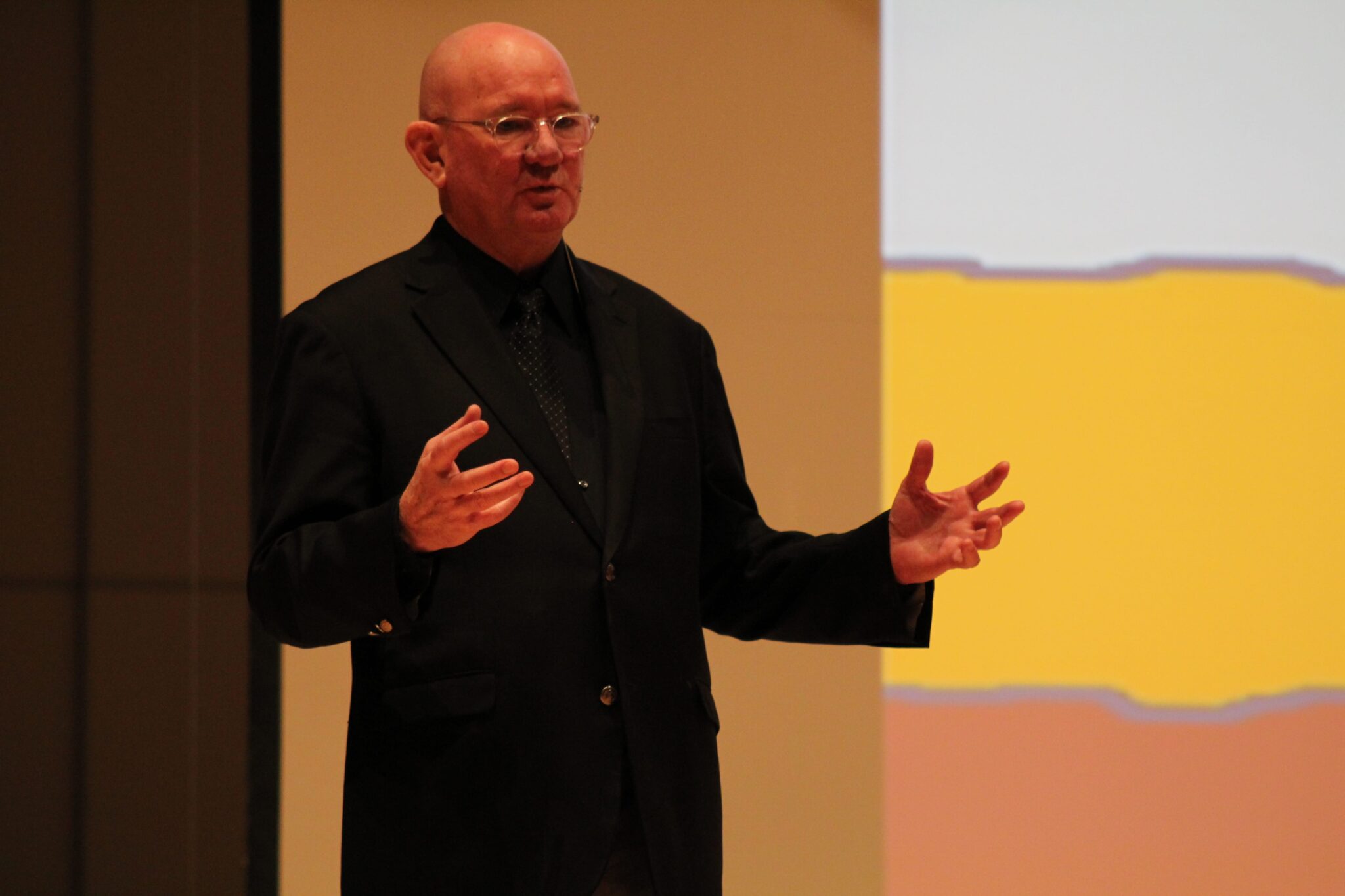Religion scholar defines sexual immorality, discusses ancient world and modern concepts
Dale B. Martin discussed how one word in the Bible has been translated to condemn all manners of sins – and which ones the writers of the New Testament actually meant when they used it.

Credit: Faith Held
The Religious Studies department hosted the seventh annual David L. Dungan Memorial Lecture on Thursday, Feb. 16, welcoming a religion scholar from Yale University to speak about sexual immorality in the Bible.
Dale B. Martin, PH.D, dove into the topic of “porneia,” a word from classical Greek that is used by Paul in his New Testament writings. In modern Christian theology, porneia is often translated to mean homosexuality or sex outside of marriage.
Martin argued that porneia actually covers a whole manner of sexual acts considered immoral in the ancient world. He explained that in classical Greek, porneia was only used to refer to prostitution.
“For the Greeks and Romans, there were all kinds of sexual behaviors that were perfectly permissible, even sex between men,” Martin said. “Jews and Christians in the period of Jesus and Paul start shifting the meaning of porneia to include sex acts they believed to be wrong.”
By the time Paul was producing his New Testament writings, the definition of porneia had expanded to cover a range of acts far beyond the original and the modern meaning. For Paul, porneia meant any sex that was not within a marriage of two members of the church for the purposes of procreation.
Martin said a man can commit porneia with his wife if one goes by the meaning of the word as it is used in the Bible.
As for scholars who use porneia to condemn only homosexuality and premarital sex, Martin said it is one example of reading the Bible to fit one’s own personal beliefs.
For Martin, his interest in the study of sex, gender and family in the Bible grew out of his religious upbringing and personal sexuality.
Before the lecture, Martin commented on his own sexuality and his upbringing.
“I grew up in a fundamentalist church and got into scholarship of the Bible and, at the same time, as I got older, I realized that I was gay,” Martin said. “So it comes from personal investment in remaining in the church…but still coming to different ideas about what counts as ‘okay sex.’”
“I started first when I was responding to other scholars who were trying to interpret the new testament as being anti-gay, anti-homosexuality, and I was answering them by saying ‘I don’t think you’re reading this text with a good enough history. The things that you’re saying this text means is not what it meant in the ancient world’,” he continued.
When it comes to the New Testament being considered an anti-gay text, Martin said he views the term “anti-gay” as an anachronism. Martin said the “gay construct” is a modern construct to identify someone as homosexual or heterosexual.
“I wouldn’t say that Paul would think that same sex relationships are fine, but the texts that have been used to condemn homosexuality in the modern world just meant different things in the ancient world,” Martin said. “I don’t think they had an idea of two men in a loving, long-term relationship, so the idea of what same sex marriage has come to mean for us, that didn’t really exist in the ancient world. So they did condemn same sex behavior, but not for the same reasons that modern conservative Christians do.”
This examination of modern beliefs is the reason why faculty in the Religious Studies department, now in its 50th year, view these public lectures as important.
Dr. Erin Darby, an assistant professor of early Judaism in the department, said that since all modern Jewish or Christian belief systems base their beliefs on some part of the Bible, making an effort to understand the Bible and the world in which it was written is key for making informed decisions.
“Who’s going to do that if academics and people who are trained in the field don’t take a lead in trying to bring people into meaningful conversation about these important texts?” Darby said.
Edited by Kaitlin Flippo
Featured Image by Faith Held

